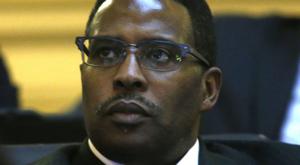
A bill to govern training and use of non-lethal weapons by police to control protests hit close to home for Del. Cliff Hayes, D-Chesapeake, whose 20-year-old cousin was critically wounded by a “bean bag” round fired at him mistakenly during an anti-racism protest in Texas at the end of May.
He told his colleagues Thursday that Justin Howell, a student at Texas State University, suffered a fractured skull and brain damage after police fired a so-called “non-lethal” munition during a protest at the University of Texas in Austin on May 31 after the death of George Floyd in police custody in Minnesota.
Austin Police Chief Brian Manley said police hit Howell mistakenly while firing at another protester who was hurling objects at them, and Texas news accounts said they also fired on protesters trying to carry Howell to safety.
“These situations require us to do more than pray,” Hayes told the House Appropriations Committee on Thursday after recounting his nephew’s story. Hayes spoke in support of House Bill 5049, proposed by Del. Dan Helmer, D-Fairfax.
People are also reading…
The committee endorsed Helmer’s bill on an 11-8 party-line vote. The legislation would prohibit state and local law enforcement agencies from buying surplus military equipment, such as weaponized drones and other combat aircraft, grenades and launchers, camouflage uniforms and armored vehicles. Those that already own such equipment would have to get a state waiver to use them.
The bill also sets standards for using tear gas and so-called “kinetic impact munitions,” including rubber bullets and bean-bag rounds for use in dispersing unlawful assemblies with appropriate warning. Officers would have to undergo training within the previous year for using such munitions and could target them only at people who pose a threat of death or injury to other officers.
Helmer said the legislation represents a compromise to satisfy law-enforcement agencies, but the Virginia Sheriff’s Association said it still objects to the provision that would prevent local law enforcement agencies from procuring armored vehicles and camouflage uniforms as surplus from the U.S. military.
“We suggest not using weaponized vehicles,” said John Jones, executive director of the sheriff’s association.
The panel also approved legislation requiring private and government employers to provide up to two weeks of paid sick leave to workers infected with COVID-19, caring for family members with the virus or quarantining because of exposure to the disease. The bill, approved by a 13-9 party-line vote, would exempt businesses with fewer than 50 employees, but only if they are not eligible for grants to help pay for the cost of the paid leave.
Del. Elizabeth Guzman, D-Prince William, who sponsored the legislation, estimated that 1 million Virginians “would not have to choose between their jobs and their family’s health” under the bill.
The Senate already has killed one bill that would have required businesses to provide paid sick leave for workers affected by COVID-19, either personally or through their families. That bill, proposed by Sen. Barbara Favola, D-Arlington, would have required businesses with 21 or more employees to provide up to 80 hours of sick leave and an additional 40 hours to full-time employees affected directly by COVID-19.
Representatives of small businesses and retailers opposed Guzman’s House bill, which would expire with the public health emergency declared by Gov. Ralph Northam or no later than June 30, 2021, the end of the fiscal year.
Nicole Riley, executive director of the Virginia chapter of National Federation of Independent Business, said the exemption for businesses of fewer than 50 employees would be undercut by the provision to require sick leave if grants are available from programs such as Rebuild Virginia, proposed by Northam with $70 million in federal emergency funds for COVID-19 relief.
Small businesses wouldn’t be eligible for grants from the governor’s program if they received potentially forgivable loans under the federal Payroll Protection Program, said Riley, who added that Rebuild Virginia would “run out of money at the end of December.”
Kim Bobo, executive director of the Virginia Interfaith Center, said paid sick leave is necessary to ensure that employees don’t show up to work when they’re sick and potential expose others to COVID-19 “It helps stop the virus so we can all get our economy moving,” she said.
Editor’s Note: This story has been updated to correct the relationship between Del. Cliff Hayes, D-Chesapeake, and his cousin Justin Howell.

